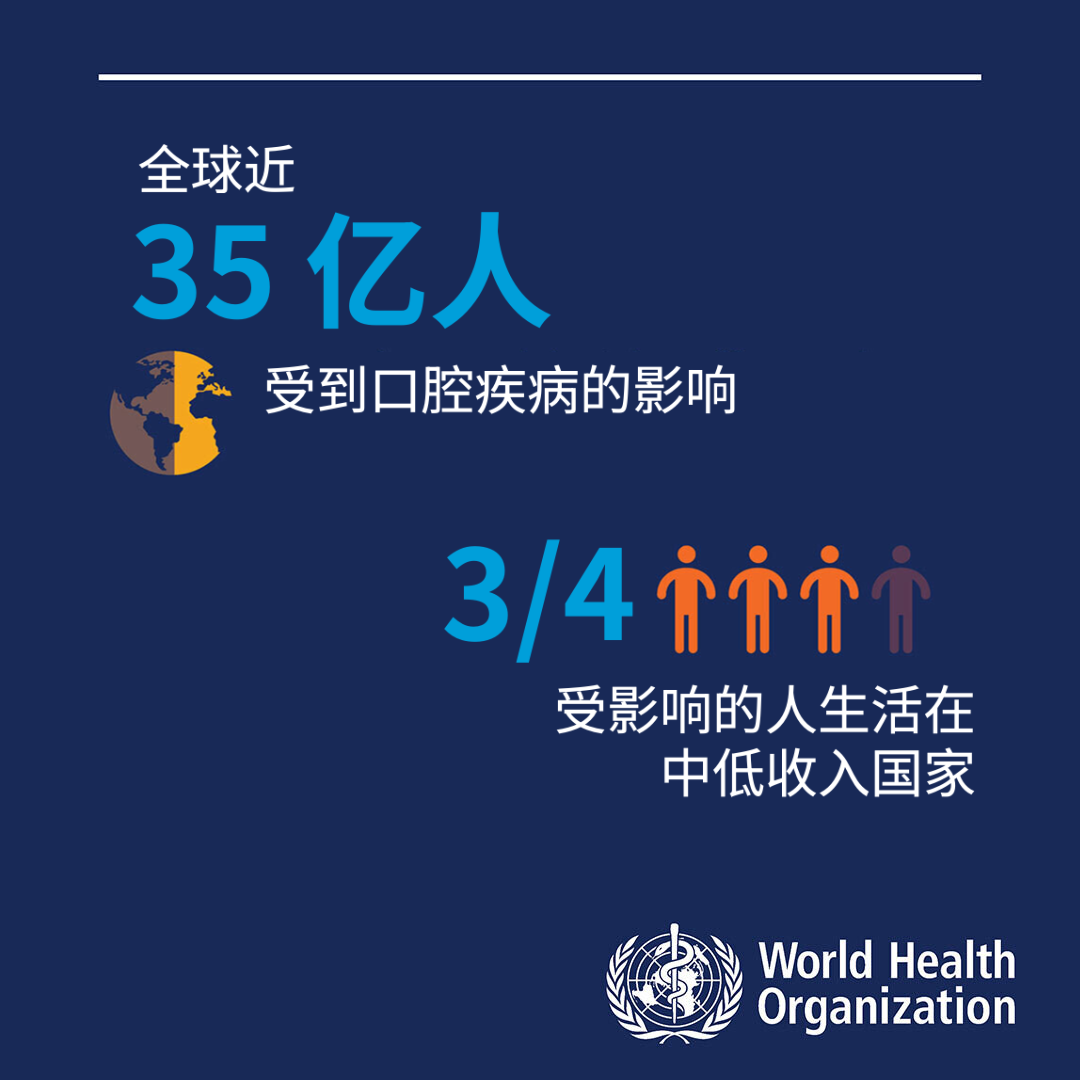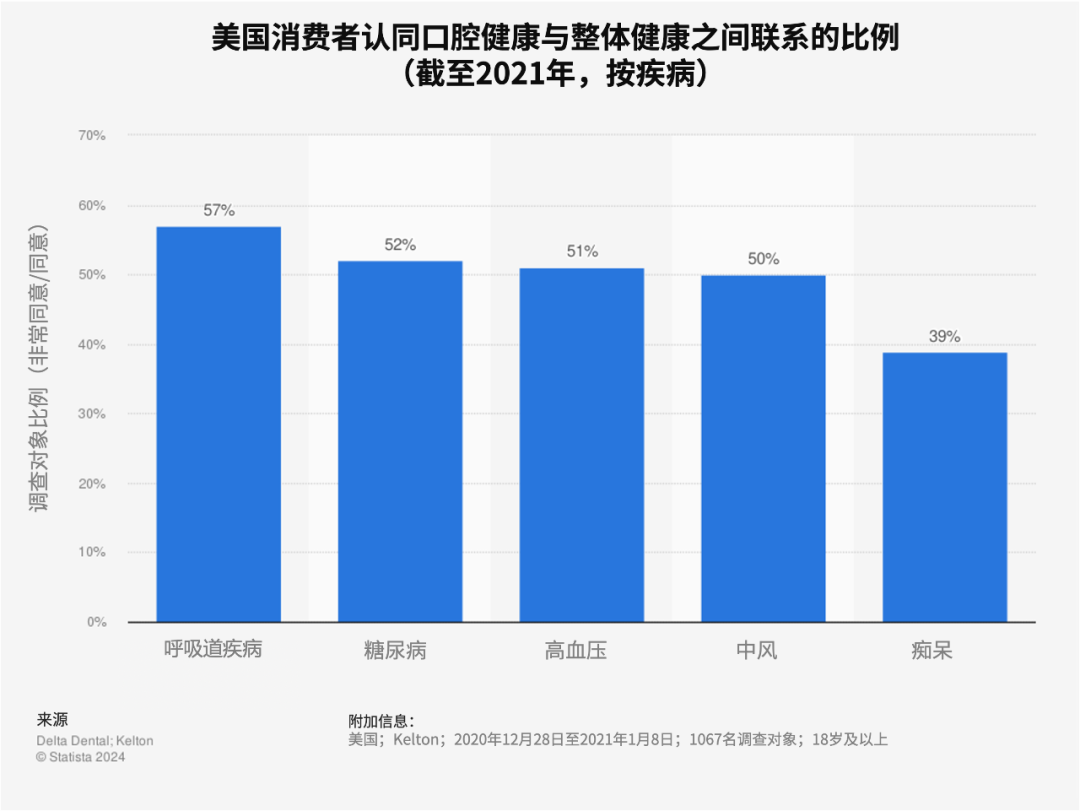Oral diseases are linked to a range of health issues, including diabetes, stroke, dementia, and heart disease, among others.
Image source:Unsplash/Shedrack Salami
Charlotte Edmond
Senior Writer for the Forum Agenda
Oral diseases affect 1 billion more people than many other major illnesses combined.
Estimates suggest that annual costs for oral healthcare and productivity losses could reach as high as $710 billion.
A new report from the World Economic Forum highlights that health systems need to invest in oral health, as oral health issues are having a particularly severe impact on the world's most vulnerable populations.
Nearly half of the global population is affected by oral diseases, and the number of cases is growing faster than the rate of global population growth. According to the latest data from the World Health Organization (WHO), the total number of people worldwide suffering from oral diseases exceeds the combined total of those with mental disorders, cardiovascular diseases, diabetes, chronic respiratory conditions, and all types of cancer—by roughly 1 billion.People with oral diseases are more likely to develop conditions such as diabetes, stroke, and respiratory illnesses. It is estimated that the annual direct treatment costs and productivity losses could reach up to $710 billion.Nevertheless, oral health remains a neglected global challenge, particularly impacting the world's most vulnerable populations in a severe way.To address these challenges, the World Economic Forum established the Oral Health Action Group (OHAG) in 2023 under its Global Health Equity Network. Comprising more than 50 companies committed to advancing health equity, the group aims to build a stronger, more productive society.The group has released a new report titled "The Economic Rationale for Investing in Oral Health," which explores the financial viability of investing in oral health—and why health systems need to consider oral health alongside other areas of the body.Nearly half of the world's population is affected by oral diseases.
Image source: WHO
Why are oral health needs going unmet?There are several reasons behind the severe unmet demand for oral health. Some stem from policy issues—dental care is often not regarded as a basic medical necessity, unlike other physical health needs.Most healthcare services tend to treat oral health separately from the health of other body parts, including those primarily funded by public resources. People often view dental care as a voluntary, out-of-pocket service, which in turn leads to affordability challenges.Many consumers have already recognized the link between oral health and the well-being of other parts of the body.
Image source:Statista
Why is good oral health so important?Oral diseases are linked to a range of health issues, including diabetes, stroke, dementia, and heart disease, and can also impact mental health and pregnancy outcomes. Therefore, maintaining good oral health not only helps reduce other healthcare costs but also positively influences overall health outcomes.However, because dental care is often treated separately from the care of other body parts—often entirely distinct ones—the link between oral health and overall well-being frequently fails to receive adequate attention.Poor oral health can also have ripple effects that extend beyond the medical realm, leading to missed school days, absenteeism from work, and reduced productivity. Low-income, vulnerable populations are particularly hard hit by these challenges. This underscores that enhancing the oral healthcare system can play a crucial role in narrowing disparities in health equity.More U.S. adults suffer from oral diseases than from chronic conditions affecting other parts of their bodies.
Image source:Statista
How can we address oral health issues?The OHAG report recommends adopting a variety of strategies to address oral health issues. The government could implement policies that make dental services more affordable for people, such as including oral care in public health insurance programs and universal healthcare initiatives.The government also has a responsibility to raise awareness about oral health and collaborate with other organizations to advocate for improvements in this area.Meanwhile, the private sector can also positively impact oral health by ensuring that people can afford fluoride toothpaste, oral hygiene products, and other items beneficial for dental well-being. Additionally, the private sector can drive innovation in developing alternatives to products harmful to oral health—such as sugary foods and beverages.Companies should ensure that the insurance plans provided by employers include dental care services.The report also highlights the critical role of civil society and outlines how charitable investments in oral health initiatives can bolster health systems while strengthening the evidence base for oral health policies.The above content solely represents the author's personal views.This article is translated from the World Economic Forum's Agenda blog; the Chinese version is for reference purposes only.Feel free to share this on WeChat Moments; please leave a comment below the post if you’d like to republish.
Translated by: Di Chenjing | Edited by: Wang Can
The World Economic Forum is an independent and neutral platform dedicated to bringing together diverse perspectives to discuss critical global, regional, and industry-specific issues.
Follow us on Weibo, WeChat Video Accounts, Douyin, and Xiaohongshu!
"World Economic Forum"








